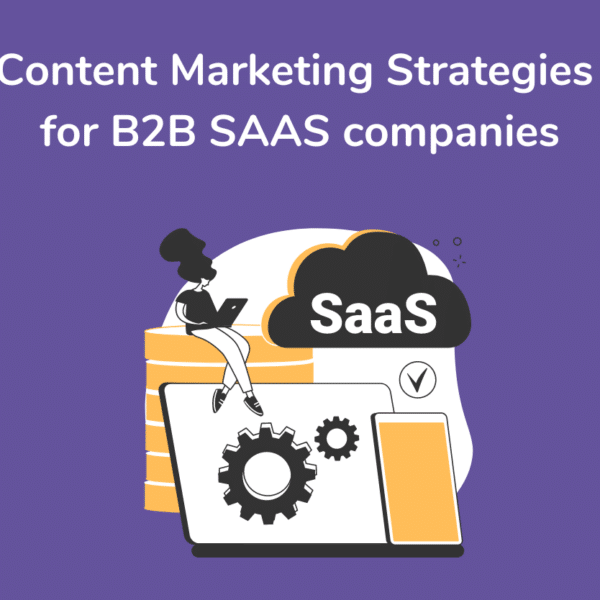Unleashing Success: Masterful Marketing Strategies for Manufacturers
In the dynamic world of manufacturing, the art of marketing is a game-changer. Beyond the machinery and production lines, effective marketing acts as the catalyst for creating awareness, sparking demand, and nurturing robust customer relationships.
This blog is your passport to the realm of impactful marketing strategies, a guide crafted to empower manufacturers in differentiating their brand, boosting sales, and charting a course for sustainable business growth.
Table of Contents
7 Power-Packed marketing strategies to Revolutionize the Brand:
1. Targeted Market Segmentation:
- Identify and tailor your marketing approach based on industry, size, location, and specific needs.
- Utilize data analytics and market research to efficiently discover and validate market segments.
- Dive deep into data collection, analysis, and segmentation techniques for a laser-focused strategy.
2. Profiling and Validation:
- Create detailed profiles for each segment, cross-referencing with external market research for validation.
- Establish market categories that align with your company’s objectives and capabilities.
3. Testing and Refinement:
- Implement, monitor, and refine marketing strategies based on real-time feedback.
- Continuously adjust segmentation strategies to align with evolving market dynamics.
4. Strong Branding:
- Build a compelling brand identity to stand out in the competitive landscape.
- Invest in a well-defined brand story, visual identity, and consistent messaging across all channels.
5. Content Marketing:
- Showcase expertise and establish thought leadership through valuable content.
- Engage your audience with blog posts, whitepapers, case studies, and videos.
6. Online Presence and Digital Marketing:
- Strengthen your online presence with a well-designed website and active digital marketing.
- Employ SEO, PPC advertising, social media, and email marketing for enhanced visibility.
7. Trade Shows and Industry Events:
- Participate strategically in events to showcase products and network with potential clients.
- Carefully select events based on relevance, industry impact, and potential for lead generation.
8. Customer Relationship Management (CRM):
- Implement a CRM system for personalized communication and insights.
- Nurture customer relationships throughout the sales cycle for improved service and targeted campaigns.
Case Study: Tesla’s Marketing Strategy for Electric Vehicles:
Tesla, a pioneer in electric vehicle manufacturing, has ingeniously utilized groundbreaking marketing approaches to revolutionize the automotive sector.
A standout instance is their methodology for sparking excitement and cultivating demand for their cutting-edge products.
At the core of Tesla’s marketing brilliance is the establishment of a robust brand identity, coupled with the strategic utilization of technology to captivate and involve consumers.
They have effectively utilised the following strategy:
- Product Differentiation: Tesla strategically positioned its electric vehicles (EVs) as high-performance, technologically advanced cars with superior range compared to traditional gasoline vehicles. Emphasizing innovation and sustainability, Tesla crafted a distinctive value proposition appealing to environmentally conscious consumers seeking a premium driving experience.
- Digital Marketing and Social Media: Prioritizing digital marketing and social media platforms, Tesla effectively engaged its target audience. Utilizing the charismatic Elon Musk as a prominent spokesperson, they harnessed platforms like Twitter for direct communication, building excitement, and addressing inquiries. This approach fostered a direct connection with customers and heightened anticipation. target audience.
- Customer Referral Program: Introducing a customer referral program, Tesla incentivized existing customers to refer new ones. This not only spurred word-of-mouth marketing but also created an air of exclusivity, rewarding customers with perks like vehicle upgrades and exclusive event invitations.
- Unique Sales Model: Tesla adopted a direct-to-consumer sales model, bypassing traditional dealership networks. Establishing branded showrooms allowed customers to intimately experience their vehicles, enabling Tesla to control the sales process, convey brand values, and offer personalized customer interactions.
- Supercharger Network Advancement: Strategic investment in the Supercharger network facilitated fast and convenient charging for Tesla EVs. Addressing the common concern of “range anxiety,” this infrastructure development alleviated barriers to EV adoption, enhancing the overall ownership experience.
- Continuous Innovation and Upgrades: Tesla’s commitment to regular software updates and over-the-air enhancements ensures continual improvement post-purchase. This dynamic strategy adds features and upgrades, fostering ongoing customer excitement and loyalty.
This amalgamation of marketing tactics has propelled Tesla’s rapid ascent and solidified its formidable brand presence in the EV market. Their innovation-centric approach, sustainability focus, and direct customer involvement have positioned them as standout leaders in a fiercely competitive industry, cultivating a dedicated and loyal customer base.
Insights of Marketing Strategies for Manufacturers:
| Marketing Strategy | Data/Insight |
|---|---|
| Digital Transformation | 92% of manufacturers consider it crucial to success |
| Content Marketing | Manufacturers with content marketing have 7.8x more site traffic |
| Social Media Engagement | Effective social media use leads to a 67% increase in lead generation |
| Trade Shows and Exhibitions | Provides opportunities for product showcase and networking |
| Customer Relationship Management | CRM implementation results in a 29% increase in sales |
| Targeted Advertising | Digital ads allow for targeted audience reach |
| Customer Testimonials and Case Studies | 82% of consumers read online reviews before making a purchase |
FAQs:
- What are the key marketing strategies for manufacturers?
Answer: Key marketing strategies for manufacturers include
- identifying and targeting the right audience.
- creating a strong brand identity.
- utilising digital marketing channels.
- focusing on product differentiation.
- implementing effective content marketing.
- optimising lead generation efforts.
- staying updated with market trends.
- How can manufacturers effectively target their audience?
Answer: Manufacturers can effectively target their audience by conducting market research to understand customer demographics and preferences, utilising data analytics to identify target segments, creating buyer personas, and implementing targeted marketing campaigns through channels such as digital advertising, trade shows, industry publications, and strategic partnerships.
- How can manufacturers differentiate their products in a competitive market?
Answer: Manufacturers can differentiate their products by focusing on unique value propositions, highlighting product features and benefits that set them apart from competitors, emphasising quality and reliability, offering superior customer service, providing customisation options, and showcasing industry certifications or awards.
- What metrics should manufacturers track to measure the success of their marketing campaigns?
Answer: Manufacturers should track metrics such as website traffic, conversion rates, lead generation, customer acquisition cost, customer lifetime value, return on investment (ROI), social media engagement, email open and click-through rates, and customer satisfaction surveys to measure the success of their marketing campaigns.
- Specific regulatory or legal considerations which manufacturers know when implementing digital marketing strategies.
| Regulatory/Legal Considerations | Description |
|---|---|
| Privacy and Data Protection | Compliance with data protection laws, obtaining consent, implementing security measures, and data control. |
| Advertising Standards | Adhering to advertising regulations, accuracy, truthfulness, and non-misleading materials. |
| Intellectual Property Rights | Respecting trademarks, copyrights, patents, avoiding infringement, protecting own IP. |
| Competition and Antitrust Laws | Compliance with laws against anti-competitive behavior, avoiding unfair practices. |
| Endorsements and Influencer Marketing | Disclosure guidelines for transparency, informing consumers about relationships or incentives. |
| Local Laws and Regulations | Awareness of specific local laws, labeling requirements, safety standards, advertising restrictions. |
Remember that the specific regulations and legal considerations may vary depending on the jurisdiction and industry.
Manufacturers should seek professional legal advice to ensure compliance with applicable laws.
Conclusion:
Effective marketing strategies are vital for manufacturers to succeed in today’s competitive landscape.
Manufacturers can attract customers, drive sales, and build lasting relationships by targeting the right audience, creating a strong brand identity, utilising digital marketing channels, differentiating their products, and engaging in content marketing.
Keeping up with market trends, leveraging data-driven insights, and tracking key metrics ensure continuous improvement and success in the ever-evolving manufacturing industry.
Embracing these strategies positions manufacturers for growth, increased market share, and sustained profitability.


Leave a Comment